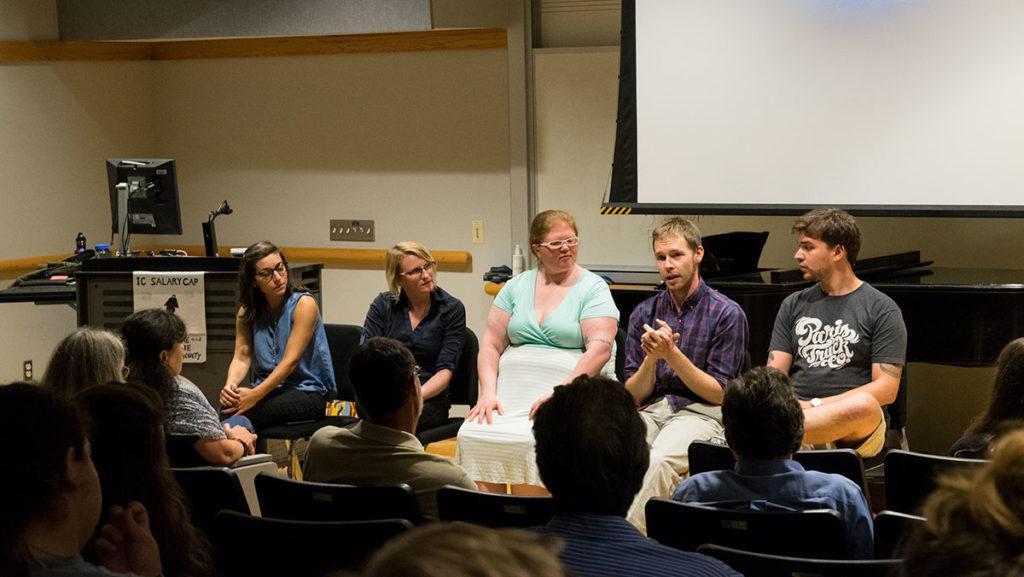About 35 part- and full-time contingent faculty members and students at Ithaca College attended a teach-in presented by members of the contingent faculty union on Sept. 6 to hear updates on their experiences at the college and with the unionization process.
During the teach-in, held in the James J. Whalen Center for Music, a panel of four faculty members and one student gave a presentation and testimony about the contingent-faculty experience, followed by a question-and-answer session.
A contingent faculty member was defined in the presentation as a member of the faculty who has to renew their contract on a rolling basis, either every semester or every year, and is not on a tenure track.
This is the second teach-in that the part- and full-time contingent faculty at the college have held this year; the previous one took place April 14. In May 2015, part-time faculty voted to unionize. A year later, in April 2016, full-time contingent faculty members announced their own plans to unionize. Though the administration denied their request to join the existing part-time faculty union, the full-time contingent faculty voted to become a union through the National Labor Relations Board.
The negotiation process is currently underway for the part-time faculty, and a date has not been set for the full-time contingent faculty union to begin negotiations.
Rachel Gunderson, lecturer in the Department of Health Promotion and Physical Education, said in her panel speech that she does not have her Ph.D., which makes it difficult for her to be on her department’s tenure track, a status which would ensure her greater job security. Therefore, she said, the administration can lay her off from working at the college if the administration makes budget cuts in her department.
“It really does play into a sense of self-doubt,” Gunderson said. “It plays into your sense of worthiness and how you fit in with your colleagues.”
Job security and livelihood are not only concerns of faculty members, Megan Graham, assistant writing professor and union member, said during her panel speech. She said students have a stake in the faculty members’ negotiation efforts with the administration. She said that when the administration lays off faculty members for the sake of making budget cuts, they terminate a sacred mentorship between educators and students.
“Students don’t get to choose which professor they get to have a relationship with,” Graham said. “They don’t get to choose which professor writes them a letter of recommendation or who helps them get to that next level.”
Senior sociology major and teach-in panelist Taylor Ford is a member of the on-campus group IC Students for Labor Action, a group that meets weekly to discuss how to maintain solidarity with the faculty unions in their bargaining with the administration. He said students should care about their professors’ livelihoods and use the influence they have to effect change.
“As students, we have a lot of power when it comes to the administration,” Ford said. “This college is accountable to us because it runs on our tuition dollars, which means that if we demand something, they will take it seriously.”








